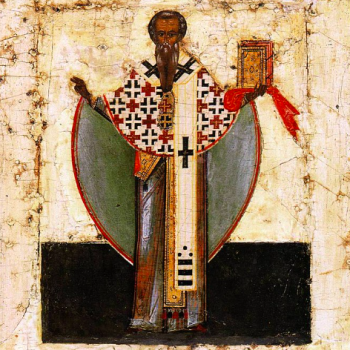In truth, their worries, while probably excessive, are not baseless. Many Catholics perceive over-corrections within post-conciliar liturgies and devotions, and the pendulum is, predictably, swinging back. The weaknesses of the vernacular translations of the Mass, particularly from Latin to English, have been recognized and are being addressed. Bishops are gently discouraging the liturgical excesses that a decade ago affected a great deal of Catholic worship and often led to eye-rolling in the pews and angry letters to the Vatican. Most notably, there is an increasing trend among Catholics -- particularly young Catholics, who got a taste of a fuller, more solemn liturgy with the funeral mass of Pope John Paul II -- to seek out the so-called Old Latin Rite. Summorum Pontificum is Pope Benedict's happy recommendation that their bishops oblige them in their desires, but whether the promotion of the 1962 Missal and a greater availability of that Mass has any discernable effect on the primacy of the Novus Ordo remains to be seen. For those of us raised in a religious environment that was half-Tridentine and half free-for-all, I suspect we will continue to straddle the chasm.
It is doubtful that the re-emergence of the Old Rite will bring a large number of us cuspers back to it, but interest in the Tridentine Mass might actually benefit the Novus Ordo. It may restore some equilibrium to those self-indulgent liturgists who have come to believe that any old thing they can come up with must be a better option than what worked for 2,000 years. A return to seriousness and an appreciation of what came before could help strengthen liturgy that has been too long unsettled (and as the liturgy goes, so goes the worship). In that case, Summorum Pontificum could be a win/win for everyone.
♦ ♦ ♦
Not long ago, one of my children -- a fairly reverent kid -- accompanied me to Mass in a neighboring parish, one we do not usually attend. Referred to as the "choir" Mass, the liturgist chose older hymns almost exclusively, and while the Novus Ordo was used, there was a pre-Vatican II moment that threw us both for a loop. "Angus Dei," the choir intoned, and suddenly the whole congregation was plainchanting, hauntingly and without accompaniment, "Qui tollis peccata mundi, miserere nobis." I was plunged back forty years into poignant remembrance.
My son leaned over and asked, "What is this?"
"It's the Lamb of God."
"I love this; this is amazing," he whispered back.
"I know," I answered, wishing he'd be quiet.
He was right, though. That brief use of Gregorian chant, and the effect it had on us and the congregation, was amazing. It brought the Holy Silence, not outside, but within. It reinforced the solemnity of a profound moment of invitation and revelation. It brought us -- willingly, sensibly -- to our knees, and rang holy, holy, holy deep within.
"Why can't we have this all the time?" my son asked.
"You will always have this," came Sr. Mary Alice's voice, through the years.
"We do," I said. "We will, I think. Almost."
Elizabeth Scalia is a contributing writer for First Things. This is reprinted with permission from InsideCatholic.com.





